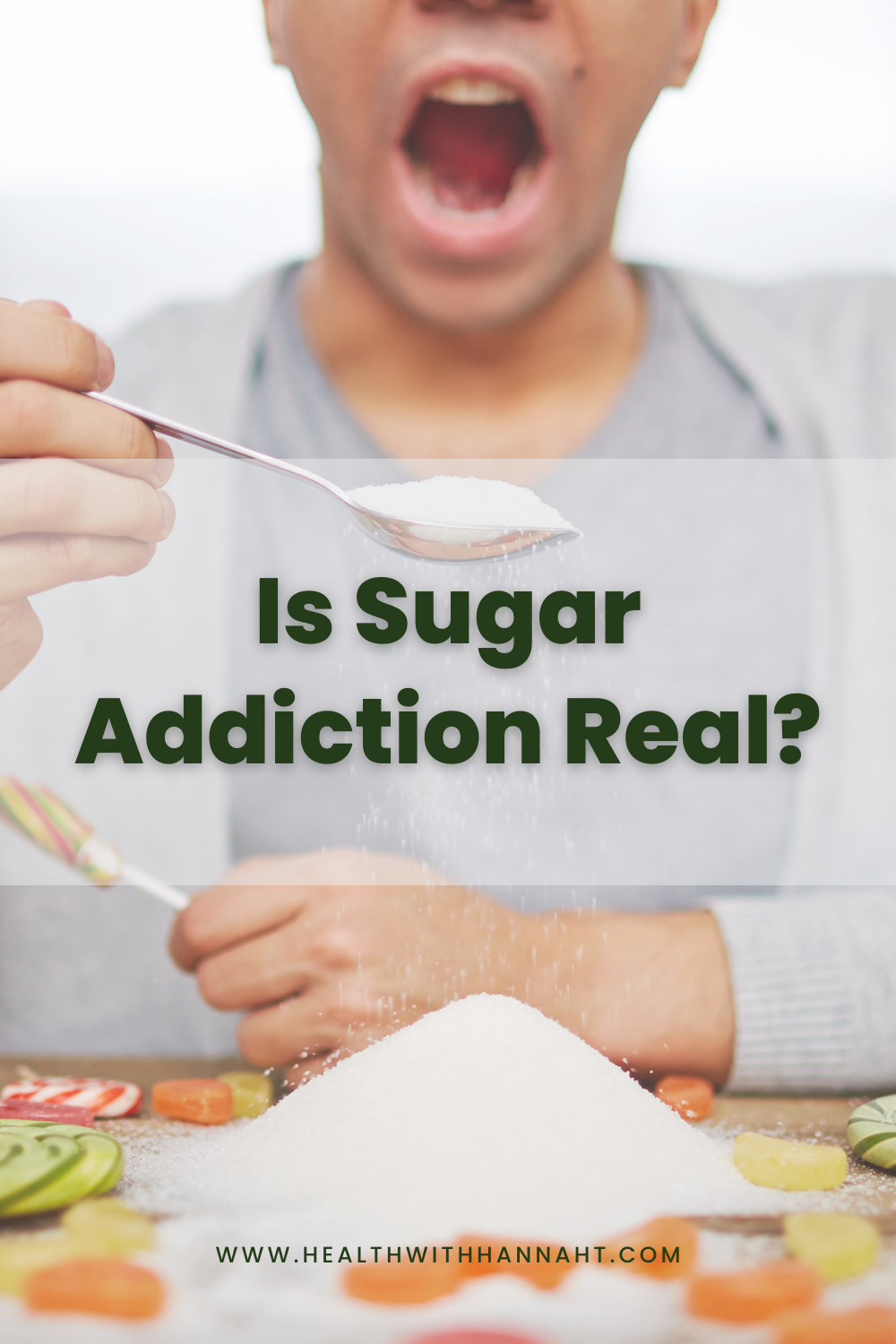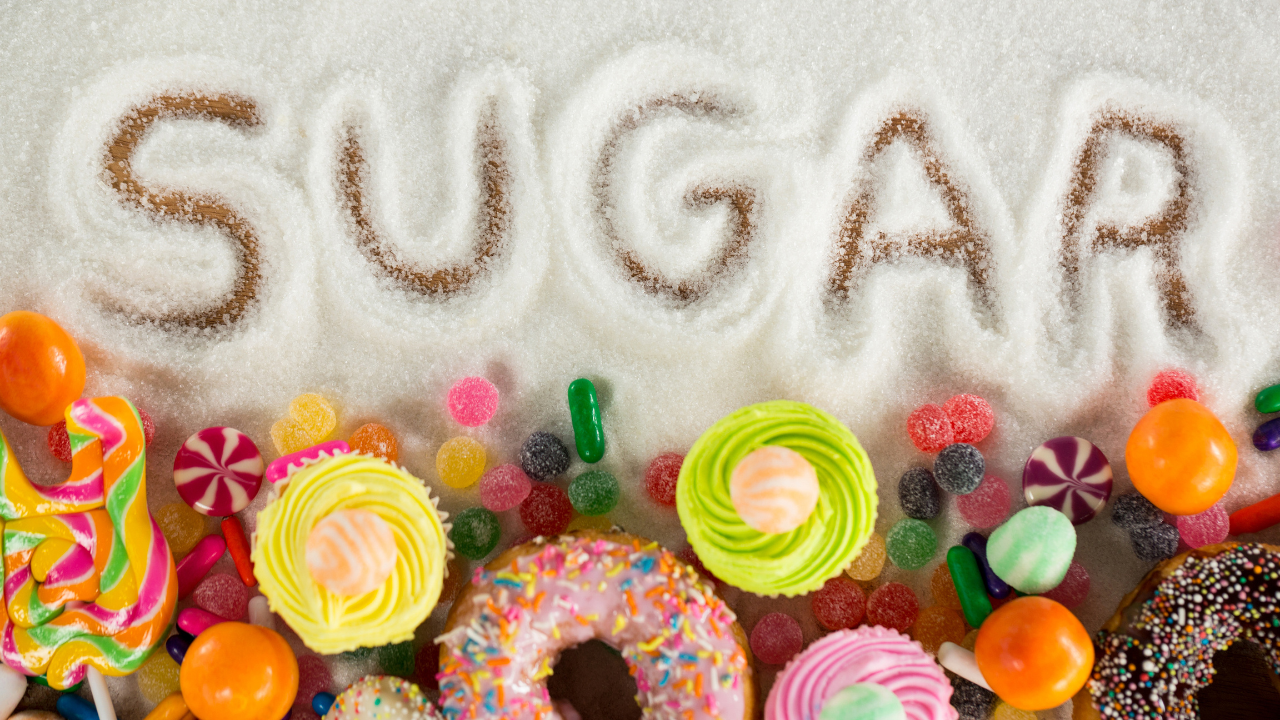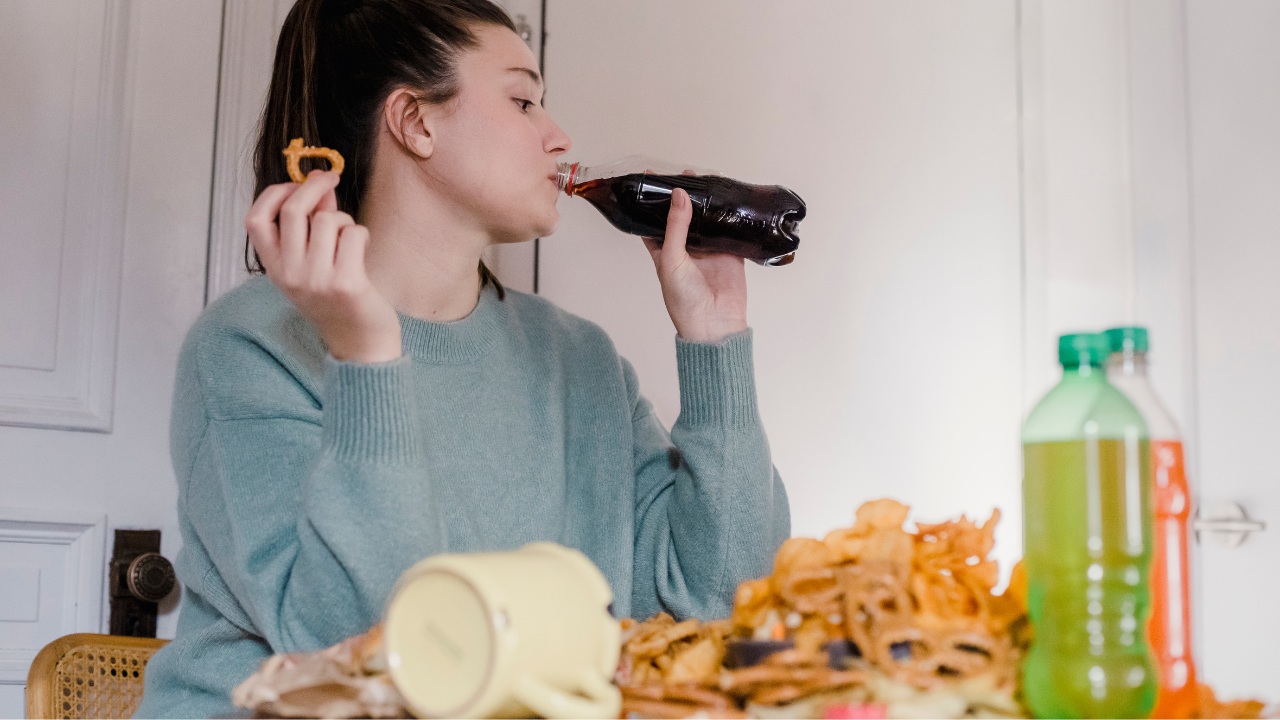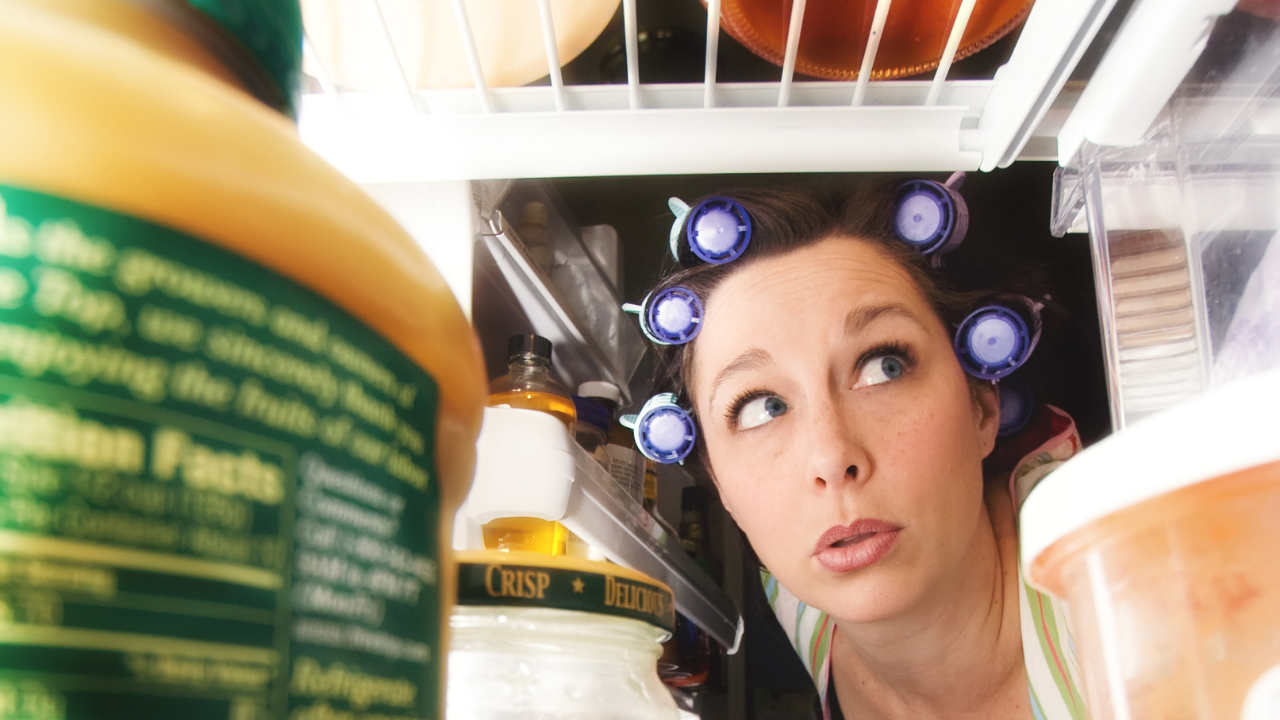Is Sugar Addiction Real?
I hear from people all the time that they feel “addicted” to food, often times referring to sugar specifically. But is this an actual addiction? Can you actually be addicted to sugar or any other food?
If you’re new here, hello and welcome! My name is Hannah and I am a non-diet dietitian here to help you improve your relationship with your food and finally find food freedom.
In this blog we will cover:
What is addiction?
What is food addiction?
How food restriction causes food obsession
Does food have addictive properties?
Food addiction vs. binge eating disorder
How to overcome feelings of food obsession
What is addiction?
The term “addiction” is where this topic gets a little messy. According to the National Institute of Drug Abuse, “Addiction is defined as a chronic, relapsing disorder characterized by compulsive drug seeking, continued use despite harmful consequences, and long-lasting changes in the brain. It is considered both a complex brain disorder and a mental illness. Addiction is the most severe form of a full spectrum of substance use disorders, and is a medical illness caused by repeated misuse of a substance or substances.”
So, addiction means that we are physically or mentally dependent on a particular substance. And while our body doesn’t need drugs or alcohol, it does need food. More specifically, our body needs carbohydrates (sugar is a type of carb). You can't be addicted to something your body needs.
@dietitianhannah Replying to @deeznutz the solution to feelings of food addîctîon is not to stop eating #foodaddiction #foodfreedom #dietitiansoftiktok #dietitiansoftiktok #edrecocery #bedrecovery #antidietdietitian #nondietdietitian #dietitianhannah ♬ original sound - Dietitian Hannah
Perhaps some better terms to describe this negative relationship with food could be food obsession, food fixation, or food preoccupation. Feeling this way about food is very valid and unfortunately very common.
What is food addiction?
There are many individuals who claim that sugar is “poison” and should never be consumed because it is addicting. Oftentimes, these claims are made by individuals who are trying to sell you something, whether it be their diet book or a supplement. This is just diet culture doing its thing.
The idea of food addiction can somewhat be attributed to The Yale Food Addiction Scale, which is a self-reported tool measuring addictive-like behaviors related to food. It has a series of questions related to certain eating behaviors.
The Yale Food Addiction Scale is based off of criteria for substance abuse. While it may be a useful tool, but it doesn’t really tell us much. It is simply based on lived experiences and it does not include any questions about dieting or restriction, even though these are strongly related to feelings of food addiction. Based on The Yale Food Addiction Scale’s criteria, you can be a “food addict” without ever actually being assessed for disordered eating habits or an eating disorder.
How food restriction causes food obsession
Food preoccupation and a negative relationship with food in general can start at a very young age and it can continue for decades. Those who say they have a food/sugar addiction often have a long history of disordered eating behaviors. And these disordered eating behaviors often include some form of restriction, which is a huge culprit for food preoccupation. This restriction can be either physical or mental.
Physical food restriction
Physical food restriction involves limiting the amount of food you eat, whether through calorie counting, a points system, portion control, or cutting out certain foods or food groups. This is a one-way ticket to the restrict-binge cycle because the body is biologically set up to protect you when it notices that you aren’t eating enough.
@dietitianhannah The ingredient household child 👉🏻fully stocked snack pantry adult pipeline #foodfreedom #sugaraddiction #foodaddict #foodaddiction #gentlenutrition #intuitiveeating #nutritiontips #dietitian #dietitiantips #dietitiansoftiktok #dietitianhannah #allfoodsfit #bedrecovery ♬ original sound - Dietitian Hannah
Mental food restriction
Mental food restriction involves allowing yourself to eat a “forbidden” food, but feeling guilty and shaming yourself when you do.
Mental food restriction may include telling yourself things like:
“I should not have eaten that”
“I will do an extra long workout to burn this off”
“Tomorrow I won’t eat as much as I did today”
“It’s okay to eat this food in moderation, but every day would be too much”
“If I’m eating *enter forbidden food* right now, I should not eat it again later”
“I’ve already ruined this day of eating. I might as well start over tomorrow”
Restriction creates rebellion
Many of us have been told that sugar is “bad” and we should avoid it. This “rule” around sugar is a type of restriction and it only makes us want to eat it more. Whereas if we know we can technically have sugar or any other food whenever we want it, it loses its appeal and there are less charged emotions around it.
Oftentimes, this food obsession starts innocently. Maybe you cut out sugar for “health reasons” but pretty soon you are fixated on points, macros, ingredient lists, etc. and you can’t stop thinking about how badly you want to eat some “bad” foods. I’ve been there.
All that to say that food preoccupation is very frequently a result of dieting, restricting, and disordered eating behaviors.
Does food have addictive properties?
Some individuals vetting for food addiction and sugar detoxes will say that food has addictive properties. But, does it?
Sugar and dopamine
It is true that eating some foods releases dopamine, a feel-good hormone. Natural pleasure centers in the brain are fired when we eat. But this response is similar to other non-addictive behaviors such as smiling, laughing at a joke, or listening to music. You probably wouldn’t argue that you are addicted to smiling.
If sugar was addictive, people would be eating spoonfuls of sugar or squirting corn syrup into their mouths. But most people don’t do that. Sugar is just very palatable. And we need sugar (glucose) to survive!
Foods also do not exert the same neurochemical response as drugs. Eating one specific type of food over and over doesn’t increase your tolerance, or produce withdrawal symptoms when without it. Food also comes in many different varieties and does not have a single pharmacological action in the body like drugs often do.
Bottom line: research has yet to find a specific “addictive agent” in foods.
Food addiction and withdrawal
Some report going through “withdrawal” without a certain food. But depending on the context, this might just be related to cutting out essential nutrients or due to mental restriction, making you want it more.
It’s normal for us to like food and enjoy eating. If we didn’t, we would not have the drive to eat and we likely wouldn’t survive as a species. Also, most cells in the body use sugar (glucose). Our brains especially depend on it. And we can’t be addicted to something that our body is dependent on.
Food addiction vs. binge eating disorder
Feelings of food obsession have a lot of similarities with the diagnostic criteria for binge eating disorder (BED). This is not to say that everyone who feels “addicted” to food has BED. However, there are many traits that overlap.
BED is an eating disorder that is often characterized by periods of eating large amounts of food to the point of feeling uncomfortable. Other symptoms of BED include:
Eating alone, secretive eating, hiding food
Weight fluctuations
Sense of lack of control over eating
Feelings of guilt, shame, disgust during and after eating
This blog is for informational purposes only and is not a replacement for a diagnosis or treatment. If you struggle with any of the characteristics of BED, please reach out to a qualified practitioner. Complete recover is possible and it is so important to seek treatment.
How to overcome feelings of food obsession
Before diagnosing yourself with a sugar or food addiction, ask yourself these questions:
Are you restricting food?
Are you skipping meals?
Are you feeling guilty when eating certain foods?
Are you neglecting self care and using food to cope with emotions?
Are you eating carbs “naked” and not pairing then with protein and/or healthy fats?
If you answered yes to some/all of those questions, here are some steps to take:
Quit the diet mentality.
Give yourself permission to eat all foods without guilt. Even sugar.
Eat food for more than just physical nourishment. It’s okay to eat for taste/emotions/celebrations, etc. Do we “need” cookies and ice cream to survive? Of course not. But do they taste amazing? Do they bring back memories? Do they bring people together? In many cases, yes. And it’s okay to eat for reasons such as these.
Prioritize self care. Find other ways to get those happy hormones going.
Eat every 3-4 hours. It’s hard to make satisfying food choices when you feel hungry.
Try to make balanced meals and pair carbohydrates with protein and/or fats.
If you think you may have binge eating disorder (BED), reach out to a healthcare professional.
Bottom line - can you be addicted to sugar?
So is food or sugar addiction real? Likely not. It is more likely a result of disordered eating habits or an eating disorder. But whether or not it is scientifically credible, your feelings about it are valid. It may feel very real to you. It is important to find out what is behind those feelings of addiction.
Looking for more support on your journey of making peace with food? We’d love to guide you inside The Nutrition Reboot Membership.
Learn more
Featured podcast episode
Featured video
Want more help on your intuitive eating journey?
Join my membership to become part of a community of ex-dieters working towards food freedom and making peace with food so they no longer need to cut out their favorite foods.
































